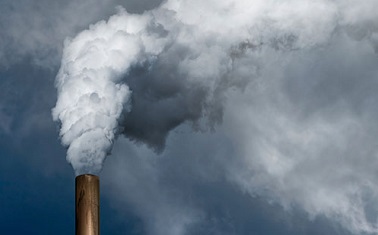New EPA rule for dirty power plants fuels strange debate

In the downside-up Alice in Wonderland world of Congress, we are about to begin a debate about whether unlimited pollution is a good thing.
It will be triggered by the Obama administration’s historic announcement today that for the first time, America’s fossil-fueled power plants will not be allowed to release limitless amounts of carbon pollution – a policy that will improve the chances our children and grandchildren will have a safe and healthy future.
No one, of course, will stand up and say they love pollution.
But you’re about to hear elected officials and industry lobbyists talk very loudly about the calamity that will occur if we impose any restriction at all on carbon pollution from power plants.
Never mind that power plants are the largest source of this pollution, or that they cause major damage to our environment and our health. And don’t worry that up until now, there have been no national limits on them at all.
According to these folks, unless we allow companies to pollute as much as they want, we will face catastrophe.
Pollution is bad – period
The new rule from the U.S. Environmental Protection Agency would establish standards for carbon pollution from existing power plants, just as they have standards for soot and mercury and other pollutants. The rule is based on decades of science, and will be proposed under authority granted by Congress through the Clean Air Act.
More importantly, it’s based on two pieces of basic common sense:
- When there is no limit on pollution, you get a lot of pollution.
- Pollution is bad.
It doesn’t seem to reassure the unlimited pollution crowd that every past effort to reduce air pollution has resulted in a net benefit for our economy as well as for our health. In fact, the benefits of most EPA Clean Air Act rules outweigh the costs by 30 to 1.
But as reliably as a humid summer in Washington, critics of the law will wildly over-estimate the cost of complying with new pollution reduction rules.
The impacts of unlimited pollution are scary, as outlined in two recent scientific reports that outline the situation globallyand in the United States. Kids will have more asthma attacks, storms will be more destructive, drought more severe, and lots of other dangerous problems.
Compare that future to one in which we have reasonable limits on carbon pollution. They won’t solve all of our problems, but they are a significant step forward. The new EPA rule will kick-start a transition to a clean-energy and low-carbon future, which will lead to economic and health benefits for everyone.
So next time someone tells you that limits on carbon emissions are a bad idea, ask if he (or she) thinks unlimited pollution is a responsible policy – and watch the person change the subject in a hurry.
It’s how these conversations usually end.
This blog first appeared on EDF Voices












